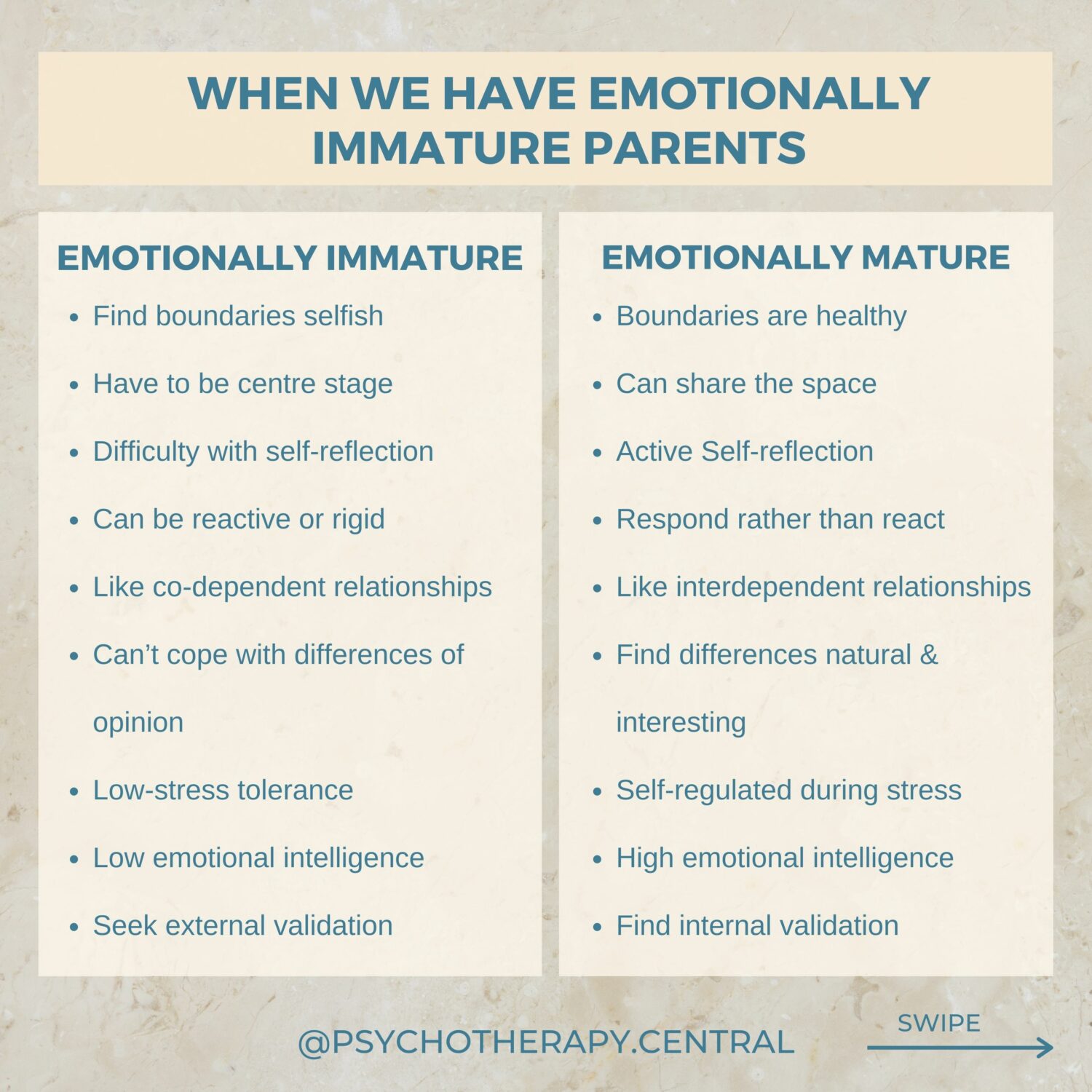Let’s start with emotionally immature parents. Your parents were emotionally immature because THEIR parents were emotionally immature. Emotional maturity is passed through family lines. If we are raised by people who know how to have healthy boundaries, self-regulate, have functional, healthy relationships, self-reflect, and share space and love most of the time, we have a head start. We will likely learn how to do these things too. We learn them in a visceral, bodily way. We hear conflict being resolved in a healthy way, and we experience how an interdependent relationship looks and feels.
When we DON’T have this example, there is an opportunity to learn it from teachers, future partners, friends, and family friends. But it is more challenging. More learning is involved because you have not been up close and personal with it. Suppose you grew up with a mother who slammed doors and was passive-aggressive during conflict as a grown woman. In that case, you are likely to also slam doors and be passive-aggressive (unable to communicate effectively when angry) as an adult.
The other response to emotionally immature parents is PARENTIFICATION. This is where the child acts as the parent figure for younger children in the family or the adult. It is common when a parent is physically or mentally unwell or has unprocessed trauma.
As adults, these children often show signs of ‘people pleasing’ and can have higher occurrences of depression and anxiety, and eating disorders (Jones and Wells, 1996).
Moving into emotional maturity takes time and focus, but it CAN be done.
- I am learning to implement clear boundaries
- I am learning to validate myself
- I am learning to self-regulate
- I am learning to re-parent
- I am learning to be okay with conflict
- I am learning to be okay with my emotions
- I am learning to be kind to myself as I grow
Do you resonate with this?
Love Jen



